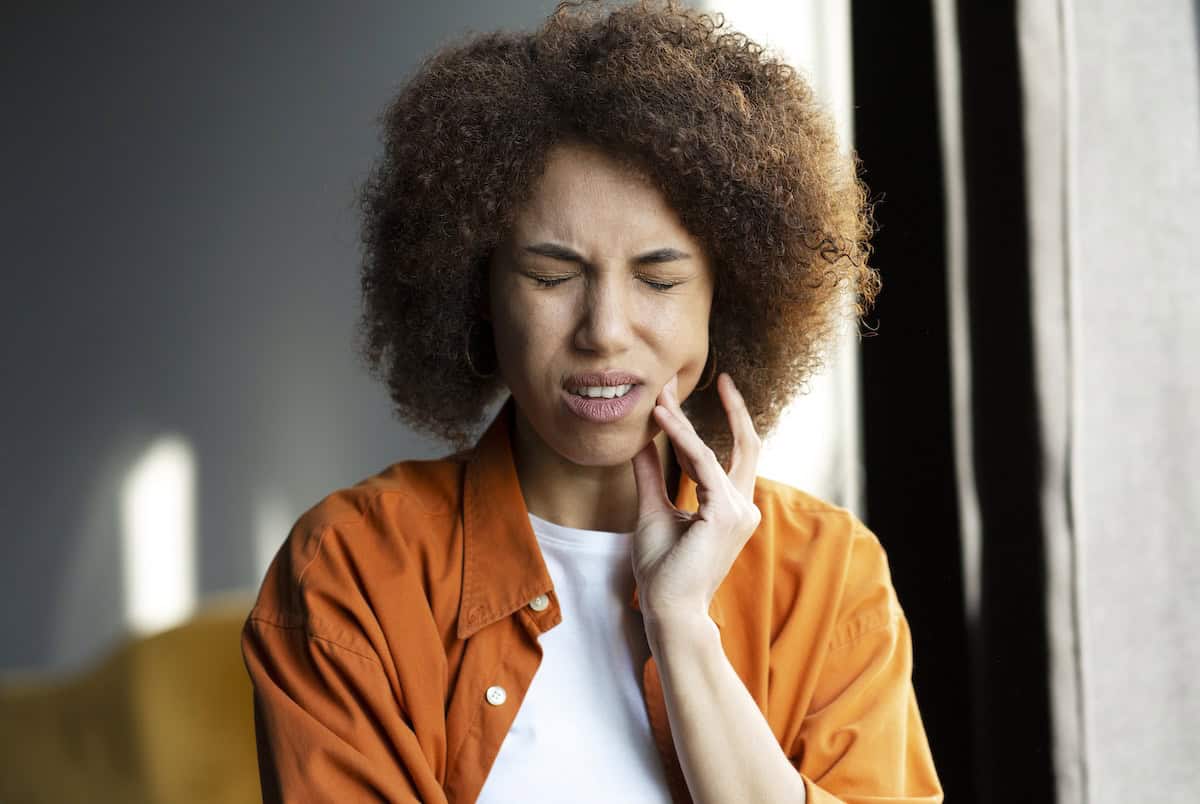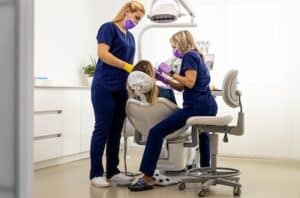
21 Mar Teeth Grinding: How to Protect Your Teeth and Gums
Understanding Teeth Grinding (Bruxism)
Teeth grinding, also known as bruxism, is a common condition that affects people of all ages. It involves clenching or grinding the teeth, often unconsciously, during sleep or while awake. Many individuals may not even be aware they have the condition until noticeable symptoms or dental damage occur.
It can be triggered by various factors, including stress, sleep disorders, or misaligned teeth. In severe cases, bruxism can lead to chronic discomfort and require professional intervention to prevent further complications.
While occasional grinding may not cause significant harm, chronic bruxism can lead to serious dental problems, including enamel erosion, gum recession, jaw pain, and even tooth fractures. Understanding the causes, symptoms, and prevention methods can help protect your teeth and gums from long-term damage.
Causes of Teeth Grinding
Bruxism can be triggered by a variety of factors, including:
Stress and Anxiety
High levels of stress or anxiety can lead to involuntary teeth grinding, especially at night. When under stress, your body may clench its muscles, including those in the jaw, without you realizing it. Finding effective ways to manage stress, such as exercise or therapy, can help reduce the severity of grinding.
Sleep Disorders
Conditions such as sleep apnea have been linked to nighttime bruxism. When breathing is interrupted during sleep, the body may react by tightening muscles, including those in the jaw. Treating sleep apnea or other related disorders can help reduce nighttime grinding and its harmful effects.
Misaligned Teeth or Bite Issues
Irregularities in how your teeth fit together can contribute to grinding. When teeth do not align properly, the jaw compensates by moving in ways that may lead to bruxism. Orthodontic treatments or dental adjustments can help address these issues and alleviate grinding.
Lifestyle Factors
Excessive caffeine or alcohol consumption, smoking, and drug use can increase the risk of bruxism. These substances can overstimulate the nervous system, leading to increased muscle activity and tension in the jaw. Reducing intake of stimulants and maintaining a healthy lifestyle can help decrease the likelihood of grinding.
Medications
Some medications, such as antidepressants, have been associated with increased teeth grinding. Certain drugs can affect neurotransmitters in the brain, leading to heightened muscle activity, including in the jaw. If bruxism is a side effect of medication, discussing alternative options with a healthcare provider may be beneficial.
Symptoms of Teeth Grinding
Recognizing the signs of bruxism can help you take early action to prevent further damage. Common symptoms include:
- Persistent jaw pain or tightness
- Frequent headaches or earaches
- Worn-down or chipped teeth
- Increased tooth sensitivity
- Gum recession due to excessive pressure
- Facial pain or soreness upon waking
- Disturbed sleep patterns
How Bruxism Affects Your Teeth and Gums
Chronic grinding exerts excessive pressure on your teeth and gums, leading to several potential issues:
Enamel Erosion
The outer layer of the teeth can wear down over time, making them more prone to decay and sensitivity. As enamel weakens, teeth may become more vulnerable to cavities and other dental problems. Preventing further erosion with fluoride treatments and proper oral care is crucial.
Gum Recession
Constant pressure on the gums can cause them to recede, exposing the roots of the teeth and increasing the risk of infection. Once gums recede, they do not grow back, making teeth more susceptible to decay and sensitivity. Proper dental care and wearing a mouthguard can help prevent further damage.
Tooth Fractures or Cracks
Severe grinding can result in cracked or broken teeth, requiring restorative procedures like crowns or fillings. In extreme cases, teeth may become so damaged that extractions or root canals are necessary. Protecting teeth with a nightguard can help minimize this risk.
Jaw Disorders
Prolonged bruxism can contribute to temporomandibular joint (TMJ) disorders, leading to pain and difficulty in jaw movement. TMJ disorders can cause clicking or popping sounds in the jaw, as well as persistent discomfort. Seeking treatment from a dentist or specialist can help alleviate these issues.

Prevention and Treatment Strategies
While teeth grinding can cause serious damage, several strategies can help protect your teeth and gums:
1. Use a Mouthguard or Splint
Custom-fitted mouthguards from your dentist can help cushion your teeth and prevent wear and tear caused by grinding. These mouthguards are designed specifically for your bite, providing maximum protection and comfort while sleeping.
Over-the-counter mouthguards are also available but may not provide the same level of protection, as they are not tailored to fit your mouth precisely. Wearing a mouthguard consistently can help reduce jaw strain and minimize the risk of tooth fractures or enamel erosion.
2. Manage Stress and Anxiety
Since stress is a common cause of bruxism, practicing relaxation techniques such as yoga, meditation, deep breathing exercises, or therapy can help reduce teeth grinding. Engaging in physical activities like jogging or swimming can also help relieve stress and tension that may contribute to jaw clenching.
Identifying stress triggers and implementing coping mechanisms can make a significant difference in reducing grinding episodes. Establishing a nighttime relaxation routine, such as reading a book or taking a warm bath, can promote better sleep and reduce stress-related bruxism.
3. Limit Stimulants Before Bed
Avoid consuming caffeine, alcohol, or nicotine in the evening, as these substances can increase muscle activity and contribute to nighttime grinding. Caffeine and nicotine act as stimulants that can heighten nervous system activity, making it harder for your body to relax.
Alcohol, while initially sedating, can disrupt sleep patterns and increase the likelihood of unconscious clenching. Opting for herbal teas or warm milk before bed can help promote relaxation and improve sleep quality.
4. Improve Sleep Hygiene
Maintaining a consistent sleep schedule, creating a relaxing bedtime routine, and ensuring a comfortable sleep environment can help reduce nighttime bruxism. Keeping electronic devices away from your bed and reducing screen time before sleep can minimize disruptions and improve rest.
A supportive pillow and proper sleep posture can also prevent unnecessary strain on the jaw and neck muscles. Ensuring a dark, quiet, and cool bedroom environment can encourage deep, restful sleep and reduce nighttime teeth grinding.
5. Correct Bite Issues
If misaligned teeth are contributing to your bruxism, your dentist may recommend orthodontic treatment, such as braces or retainers, to improve alignment. Uneven pressure from a misaligned bite can strain the jaw muscles, leading to involuntary grinding.
Dental procedures such as reshaping certain teeth or using crowns may also help balance the bite and alleviate discomfort. Addressing alignment issues early can prevent further complications and improve overall oral health.
6. Perform Jaw Exercises
Gentle jaw stretches and massages can help relax the muscles and reduce tension in the jaw, minimizing grinding. Simple exercises, such as opening and closing the mouth slowly or gently massaging the jaw joints, can promote flexibility and relieve tightness.
Practicing mindfulness and being conscious of clenching during the day can help prevent unconscious grinding. Strengthening and relaxing the jaw muscles regularly can lead to long-term improvement in bruxism symptoms.
7. Stay Hydrated
Dehydration has been linked to muscle tension, including in the jaw. Drinking plenty of water throughout the day can help keep your muscles relaxed. A well-hydrated body ensures that essential minerals, such as magnesium and potassium, remain balanced, preventing muscle cramps and tension.
Avoiding excessive sugary or acidic drinks can also protect enamel from erosion while maintaining overall oral health.
8. Regular Dental Checkups
Visiting your dentist regularly ensures that any signs of bruxism are detected early, allowing for timely intervention to prevent severe damage. Your dentist can assess the condition of your teeth, gums, and jaw to determine the severity of grinding and recommend appropriate treatments.
Professional cleanings and fluoride treatments can strengthen enamel, reducing the impact of grinding over time. Early diagnosis and preventive care can help you avoid costly and extensive dental treatments in the future.

Conclusion
Teeth grinding can have serious consequences for your oral health, leading to tooth damage, gum issues, and jaw pain. By understanding the causes, recognizing the symptoms, and taking proactive steps to prevent and manage bruxism, you can protect your teeth and gums from long-term harm.
If you suspect you grind your teeth, consult your dentist for personalized solutions to keep your smile healthy and pain-free. Early intervention can prevent further complications and improve your overall oral health.
With the right treatment and preventive measures, you can minimize the effects of bruxism and maintain a strong, healthy smile for years to come. Don’t ignore the signs – take action today to protect your teeth and gums from unnecessary damage.



Sorry, the comment form is closed at this time.